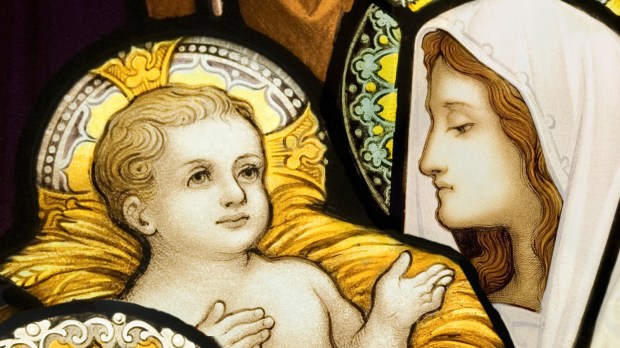Help Aleteia continue its mission by making a tax-deductible donation. In this way, Aleteia's future will be yours as well.
*Your donation is tax deductible!
Throughout December you probably will hear the phrase, “Merry Christmas!” It is a phrase that many Christians now fight to use, but what does “Christmas” really mean?
The English word is unique and differs greatly from how other language groups refer to Jesus’ birth.
For example, Italians say “Buon Natale,” which has at its root the Latin word natus, meaning “born” (referring to Christ’s birth). Spanish speaking people have a similar phrase, “Feliz Navidad,” that has the same Latin root word.
Christ’s Mass
In England a different tradition arose in the 11th century for labeling Jesus’ birth. According to the Catholic Encyclopedia, “The word for Christmas in late Old English is Cristes Maesse, the Mass of Christ, first found in 1038, and Cristes-messe, in 1131.”
In modern English it became “Christmas” and follows a custom of combining the word “Mass” with the main focus of a particular feast day.
Throughout the liturgical year in England there is the feast of “Michaelmas” (in honor of St. Michael); “Candlemas” (a day when candles are blessed at Mass); and “Marymas” (referring to major feasts in honor of the Blessed Virgin Mary).
December 25 then became known as “Christ’s Mass,” a day when Mass is celebrated in honor of Christ’s birth.
Christmas is a very common term used in the English language. Sometimes it is good to take a step back and learn the origins of this popular word that is also used in secular culture.



